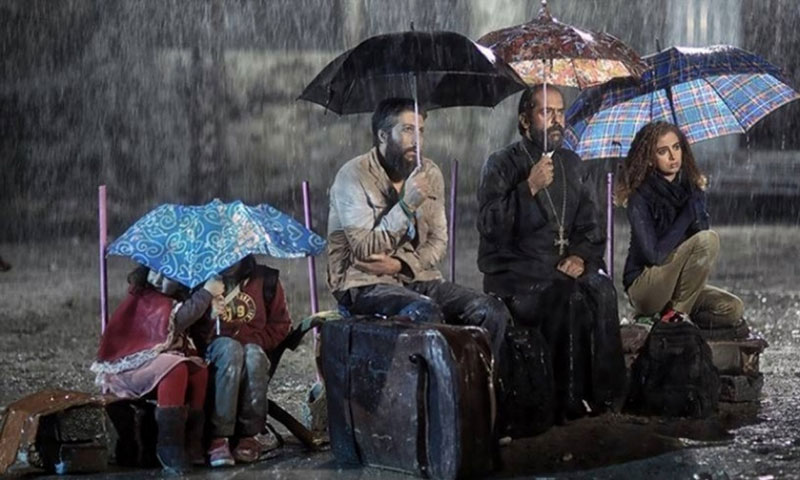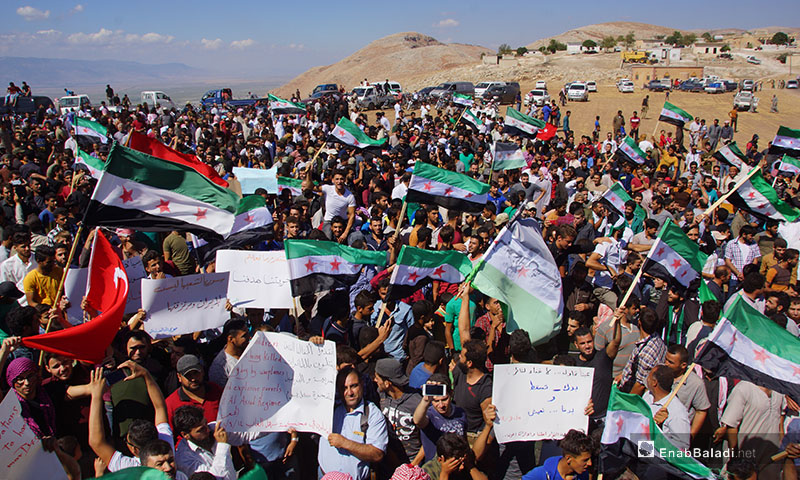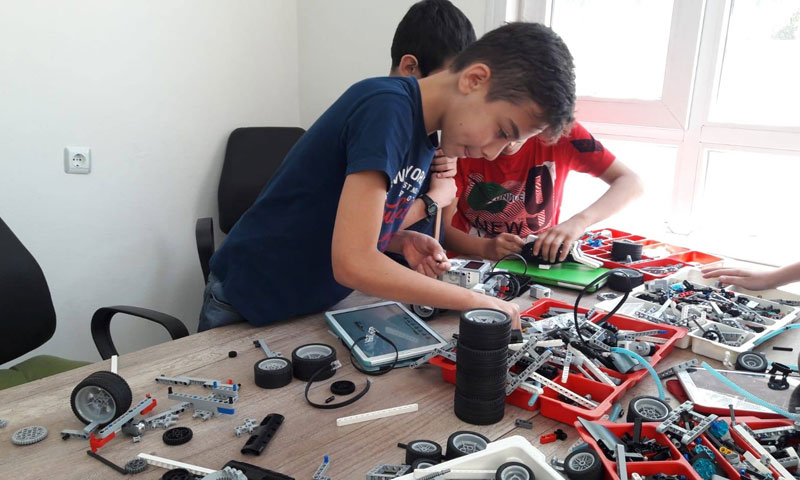‘Mosaic’.. No Longer a Profession
Enab Baladi Issue # 83 – Sunday August 22, 2013
 Idlib countryside is famous for the diversity of professions and handcraft. Mosaic industry is one of these professions. It is an old industry that is based on placing small pieces of different colored stones together to form magnificent pictures. However, this industry was not among the Syrian industry after Act1 was signed by the president in 1997. According to this act, everyone makes or sales a piece or pieces that distort the historical truth will be punished because he is trafficking in antiquities. However, in 2003 another act was enacted and allowed people to work in this profession after taking permission from Trade Union of workers.
Idlib countryside is famous for the diversity of professions and handcraft. Mosaic industry is one of these professions. It is an old industry that is based on placing small pieces of different colored stones together to form magnificent pictures. However, this industry was not among the Syrian industry after Act1 was signed by the president in 1997. According to this act, everyone makes or sales a piece or pieces that distort the historical truth will be punished because he is trafficking in antiquities. However, in 2003 another act was enacted and allowed people to work in this profession after taking permission from Trade Union of workers.
The absence of this industry returns gradually this year because of poor economic and security situations which can be seen in the unavailability of primary materials and their high prices. Moreover, their prices are increased between threefold and six-fold. Besides, it is inaccessible because it is available in the areas that are under the control of regime forces. When these materials are passed through the regime’s barriers, the regime forces will either confiscate a large amount of the materials or force people to pay random fees.
There are more factors that lead this industry to be retreated. One of these factors is that the demands in domestic and foreign markets are declined. These paintings are exported outside via Lebanon which is not a safe passage anymore.
Mohammed Ekal, the owner of one mosaic workshop in Telmnse village, spoke to Enab Baladi: “in the past, the number of workers in my workshop was almost twenty. Now, there are only seven people because of the recession in the domestic market. We prepare most carpets and send them to Lebanon.” Their shipping became more difficult and expensive, Ekal continued: “in the past, the cost of shipping one kilo was almost 8 Syrian pounds. Now, we pay 100 Syrian pounds for a kilo; besides the unavailability of materials and their high prices”. This forced him to substitute the cubes with a normal colored stones. He added:” we could not deliver most of these paintings on time. Thus, they are refused and remained in the angles of the operator. Despite all these obstacles, the profit of the sold painting is not worth mentioning.”
Enab Baladi correspondence visited Kafranbel and noticed that few people worked in this industry and that the amount of production was little. Ahmed Khatib, a worker in this profession, spoke:
“In the past, everything was better. There was more work than today and the amount of production was also bigger than today. The worker produced almost 4 meters in 12 hours, while today, his production is about 2 meters or less in approximately 14 hours”. This was because of the psychological pressure which they encountered, and the threats all the time that the regime forces would attack them, Ahmad said. He added:”the most devastating thing in this profession is that we leave the work before completion either because of the unavailability of materials or because of the sudden displacement these days.”
Economists and workers in this profession expect that this profession will be demised from Idlib countryside which means that the number of unemployed people will increase.
if you think the article contain wrong information or you have additional details Send Correction
-
Follow us :
Most viewed
- Israel threatens Damascus via Jaramana
- Negotiations between SDF and Damascus: Agreement on generalities, disagreement on details
- Why Damascus remains silent about Netanyahu's threats?
- Syria awaits exceptional season in tourism sector
- Suspension of EU sanctions: Limited impact fails to meet recovery needs in Syria

















 A
A
A
A
A
A






 More Translated Articles
More Translated Articles